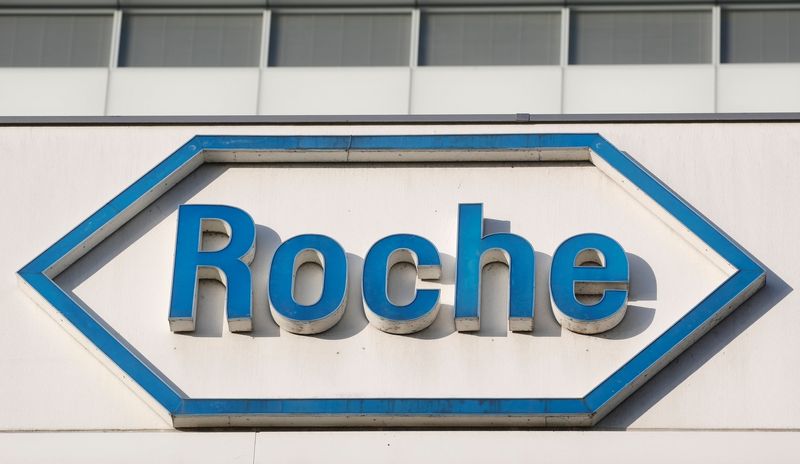By Ludwig Burger
(Reuters) -Roche agreed to take over unlisted obesity drug developer Carmot Therapeutics for $2.7 billion upfront, joining a list of contestants seeking to challenge the dominant makers of weight-loss drugs Novo Nordisk (NYSE:NVO) and Eli Lilly (NYSE:LLY).
The U.S. takeover target's most promising drug candidate, a once-a-week injection called CT-388, is a dual GLP-1/GIP receptor agonist like Lilly's Mounjaro, or Zepbound.
After encouraging Phase I trial results, the Carmot drug is ready to be tested on humans in the second of three trial stages, with a possible market launch in the 2030s, the head of Roche's pharmaceuticals division Teresa Graham told Reuters on Monday.
Weight-loss drug market leader Novo is ahead with its injection Wegovy, a single agonist of the GLP-1 gut hormone receptor. Overwhelming demand has left the group scrambling to boost production.
Roche shares rose 2.4% to a six-week at 1115 GMT on optimism that the weight-loss market, estimated by some analysts to reach as much as $100 billion, will accommodate many rivals.
"The markets are large enough for 'me too' products, particularly when offered at the right price," Zuercher Kantonalbank analysts said in a note.
Roche's Graham said the company was more ambitious than having a low-price alternative to the leaders in the market, telling Reuters that CT-388 could become the best obesity drug in the GLP-1 class, either on its own or in combination with other compounds.
"There is opportunity for deeper weight loss, there is opportunity for that weight loss to happen more quickly and tolerability is maybe one of the bigger issues," said Graham.
Among recent deals to acquire obesity drug development projects, AstraZeneca (NASDAQ:AZN) last month agreed to pay up to $2 billion for the rights to an experimental pill from China's Eccogene. Lilly in July acquired unlisted Versanis for up to $1.93 billion to further boost its pipeline.
New Roche CEO Thomas Schinecker, who is pursuing a variety of therapeutic fields to offset falling oncology sales, has set a high deal pace to restore a development pipeline that was hit by major trial setbacks in Alzheimer's and cancer immunotherapy last year.
Roche in October agreed to pay an initial $7.1 billion to Roivant and Pfizer (NYSE:PFE) for rights to a new inflammatory bowel disease drug.
Under the Carmot deal, which is expected to close in the first quarter of 2024, its owners will receive up to $400 million in addition to the upfront payment if certain milestones are achieved, Roche said.
For the Swiss drugmaker, the deal marks a return to a GLP-1 field that it abandoned in 2018, when its subsidiary Chugai sold the rights to an experimental pill to Lilly for $50 million upfront.
"This is a place where we needed the science to evolve a bit more completely," Roche's Graham said.
Privately held Carmot, which announced plans to go public last month, was co-founded in 2008 by long-time CEO Stig Hansen.

While keeping a Carmot board seat, Hansen early this year became CEO of Kimia Therapeutics, which was spun out of Carmot to focus on the discovery of new metabolic diseases drugs.
Carmot's portfolio includes a range of gut-hormone drug candidates, in pill and injection form, aimed at treating obesity in patients with and without diabetes, Roche said.